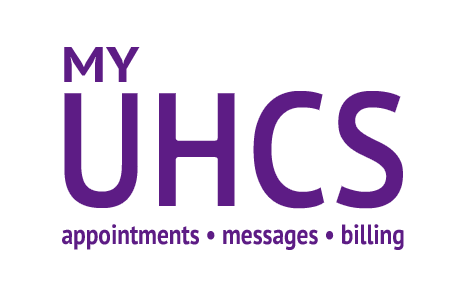Wellness Information
- Request a Program
-
Wellness Information A-Z
- Alcohol and Other Drugs
- Anxiety Information
- Assertiveness
- Back Pain
- Birth Control Methods
- Cold and Flu
- Condoms and Barrier Methods
- Consent
- Dating Violence
- Depression and Sadness
- Eating Disorders
- Emergency Contraception
- Exercise
- Family Concerns
- Fever
- Grief and Loss
- Headaches
- Human Papillomavirus (HPV)
- Immunizations
- International Student Wellness
- LGBT Wellness
- Men's Health
- Mental Health
- Nausea and Vomiting
- Nutrition and Eating Healthfully
- Pap Tests
- Pregnancy
- Self Esteem and Confidence
- Sexual Assault and Harassment
- Sexually Transmitted Infections
- Skin Care and Tanning
- Sleep
- Stress
- Students of Color
- Suicidal Thoughts
- Test Anxiety
- Time Management
- Tobacco and Cessation Information
- Transitioning to UW-W
- TransHealth
- Weight - What's Best for You?
- Women's Health
- Your Period - What's Normal, What's Not
- Wellness Resources
- Massage Therapy
- Wellness Peer Educators
Eating Disorders
UHCS Services
UHCS provides a variety of services for students who are dealing with negative body image or disordered eating. Our treatment team consists of mental health professionals, a psychiatrist, physicians, and providers with background in nutrition. This multi-disciplinary team will address your physical symptoms, your emotional health, your caloric intake, and medication needs (when applicable). Call 262-472-1305 with questions or to setup an appointment.
Overview
Here are some warning signs of an eating disorder:
- Always thinking and talking about food
- Excessive exercising
- Staying away from activities just because of concern over body weight and size.
- Concern about being fat when one is a healthy weight
- Self-induced vomiting (rushing to the bathroom after eating, swollen "chipmunk" face)
- Use of laxatives and diuretics (product or empty wrapper may be left around)
- Hoarding large amount of food in one's room or car
- Frequent large weight gains and losses
- Less frequent , heavy or loss of menstruation
- Paleness and dizziness
Do you have a friend struggling with an eating disorder, such as anorexia, bulimia, or a binge eating?
Having an understanding of eating disorders is important for you to better help your friend. Eating disorders are illnesses and not choices. They arise from a variety of physical, emotional, social, and familial issues. All of these issues need to be addressed with the help of a professional for effective prevention and treatment of eating disorders. People with eating disorders have a real mental illness that distorts their body image.
You cannot force someone to seek help, change their eating habits, or change their attitudes. But, you can help your friend by honestly sharing your concerns, providing support, and finding out where to go for more information.
- Learn as much as you can about eating disorders.
- Know the differences between facts and myths about weight, nutrition, and exercise, so you can reason against a friend's inaccurate ideas.
- Talk opening and honestly with your friend about your concerns.
- Be caring, but be firm. Your friend must be responsible for their behavior. Avoid making rules, promises, or expectations you cannot keep.
- Compliment your friend on their wonderful personality, successes, or accomplishments.
- Be a good role model for healthy eating, exercise, and self-acceptance.
- Tell someone else about your concerns for your friend. Addressing body image and eating disorders early before they become life threatening offers a better chance for success in becoming healthy again.
- Eating disorders are not just a "woman's or a girl's problem." People of all genders who are preoccupied with shape and weight can also develop eating disorders



